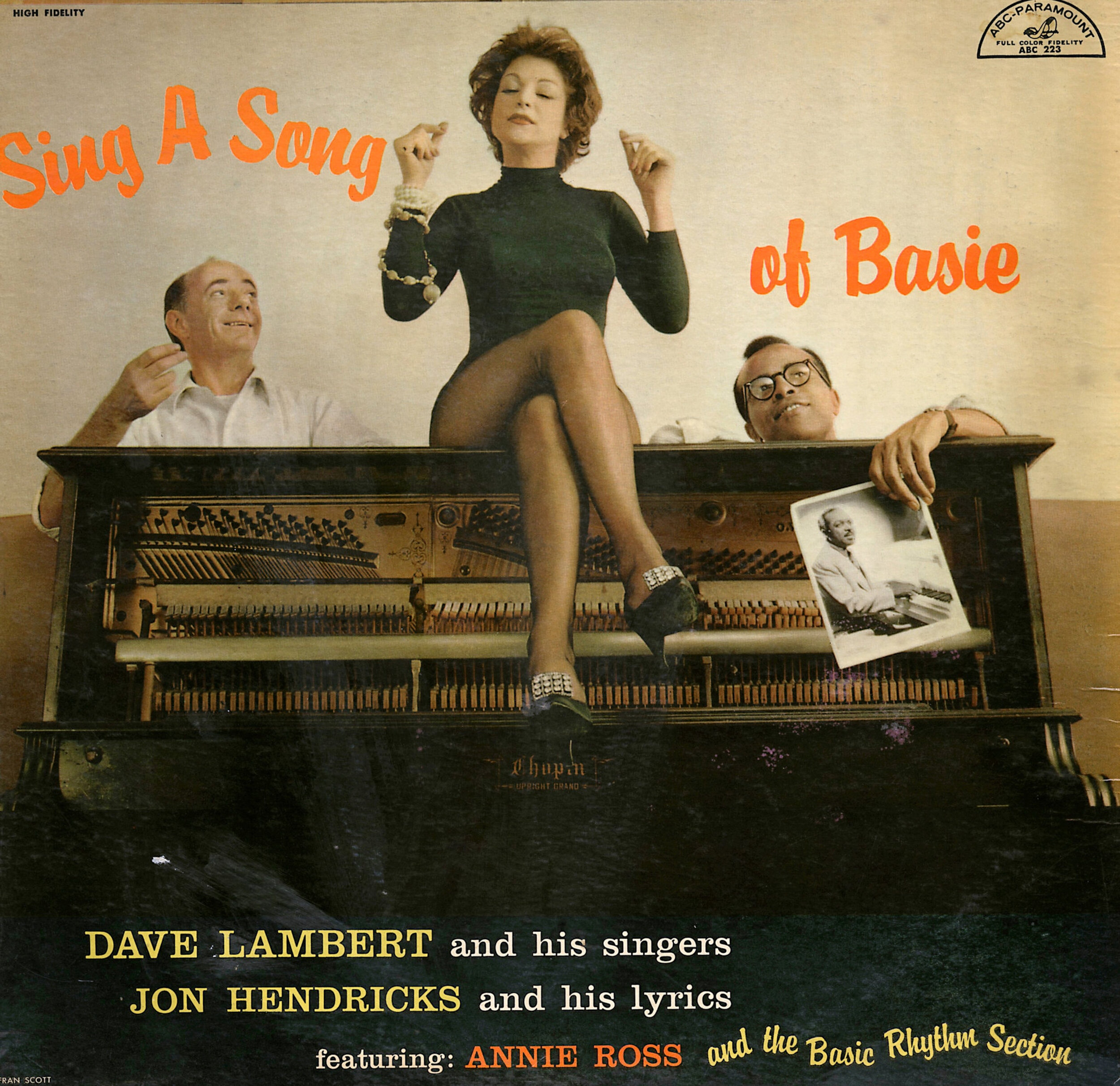Rick Clark's Music I Love Blog - Artist: Lambert, Hendricks & Ross
It’s been over a week since I dug into some music. After all the crazy stuff happening everywhere, I just wanted to unplug and dive into something smart, accomplished, and a fun to hear. The Jazz Scat and Vocalese vocal trio, Lambert, Hendricks & Ross came to mind, and, before I knew it, I was spending several hours getting lost in their energetic brilliance. By the time the group formed in the mid-late ‘50s, Dave Lambert had already made a name for himself as an arranger of great jazz music. Jon Hendricks, who some called the Poet Laureate of Jazz, saw himself as “a person who plays the horn without the horn,” and Annie Ross was already an established Vocalese writer.
Louis Armstrong and Ella Fitzgerald helped popularize Scat Singing, where the vocal would take on the role of an instrument, usually horn or sax, and syllabically convey the spirit of those performances. Eddie Harrison, Babs Gonzales, and King Pleasure made some groundbreaking recordings lyrically adapting jazz phrasing which was called Vocalese. It was Lambert, Hendricks & Ross who brought Scat and Vocalese on to the scene and delivered several excellent commercially successful albums that totally celebrated these vocal styles with intelligently playful interpretations of compositions by Count Basie, Duke Ellington, John Coltrane, Miles Davis, Sonny Rollins as well as some fine originals. It is truly special music.
At the time, Lambert, Hendricks & Ross were really the only interracial and mixed-gender vocal jazz group achieving notable visibility. Even though they attained considerable acclaim, many television variety shows were nervous about having them as guests due to concerns American viewers, especially in the South, would be offended by a white woman singing close to a black man. Nevertheless, the trio did make inroads on television thanks to Hugh Hefner’s Playboy’s Penthouse Party show in 1959 and Steve Allen’s prime time variety show on November 23, 1958, where the trio sang from their acclaimed Sing a Song of Basie album. As a result, they actively helped bring desegregation into many households at a time when the fight for Civil Rights was increasing front and center in American culture. Regardless of any pushback, the trio landed a Grammy in 1962 for Best Performance by a Vocal Group for their third album High Flying.
Among the numerous artists influenced by Lambert, Hendricks & Ross were Manhattan Transfer, Al Jarreau, Bobby McFerrin, and Joni Mitchell, who later recorded a version of Annie Ross and Gray Wardell’s “Twisted” for the album Court and Spark. You can hear the original Lambert, Hendricks & Ross version here in the post.
Artist: Lambert, Hendrix & Ross / Track: “Twisted” later popularized by Joni Mitchell on her album Court and Spark.
Those who may remember back then will recall how much African-American culture on television came represented in the form of shows like ‘Amos and Andy’ and characters like Buckwheat with the occasional acceptable appearances by Nat King Cole or Johnny Mathis. The idea of seeing Annie Ross mugging around with Joe Williams and Jon Hendricks on television singing “Everyday I Have The Blues” was unsettling to many. I’ve included that clip in my post. It is a killer performance and you might find yourself wondering why it was a risky thing.
Mary and I have been latecomers to the show Mad Men and, watching it now, it brings back memories of people actually expressing concern about these mixed-race performances and how it would lead to the decline of culture. I want to take a bath just thinking about how fucked up and detrimental that thinking was to the healing our country so desperately needed and still needs.
I’ve included some really great live and studio performances on my post and also a a great interview with Dizzy Gillespie and Jon Hendricks, plus a 1927 recording by Bee Palmer performing “Singin’ The Blues.” It is probably the earliest recording of jazz-influenced riffing on vocal.
I hope you enjoy this special music. It was fun whipping this post together and made me remember how much I love Lambert, Hendricks & Ross. Thanks for listening.



